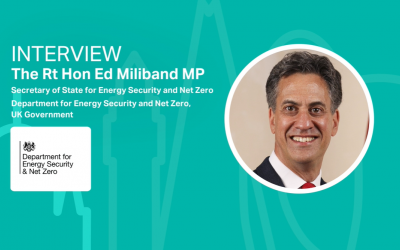New commitment to rise to the climate challenge
Our collective will to rise to the climate challenge has never been stronger. The major challenges of climate change are now well understood. Scientists have shown that if nothing is done, we will collectively face great climate insecurity. However, there are five trends that inspire new hope for global progress towards meaningful action and a binding climate agreement.
World governments have pledged to limit the increase in global average temperature to 2 degrees C above pre-industrial levels. However, with the current trajectory of greenhouse gas emissions, we will have even warmer temperatures by 2100 – 3-4 degrees C above the base level. The consequences of climate change are already being felt around the world, and an increase of 3-4 degrees C would cause even more pronounced impacts related to food security, water supply, the frequency and intensity of storms, drought, and the displacement of people in particular in the most vulnerable countries.
Five major trends
The question that arises is, are we able to cope with this challenge? There is no universal answer. However, here are five trends that lead me to believe that our collective will to rise to the challenge of climate change has never been stronger:
Citizens are mobilising. The People’s Climate March in September saw 400,000 people in the streets of New York (pictured right), and thousands of others in cities around the world, collectively demanding action on climate change. Citizens have been mobilised on climate change in the past, but this is the first time people from all regions of the world publicly demonstrated in a collective manner their willingness to influence political decisions on climate action.
Major countries are committing to reduce emissions. China, the largest emitter of greenhouse gases in absolute terms, expressed for the first time that it was ready to act, and pledged in September 2014 to cut its emissions by 45 per cent compared to 2005 levels. The USA, the biggest per capita emitter, has pledged to implement more stringent emission standards to cut carbon pollution from power plants. Together, China and the USA, which represent over 40 per cent of global greenhouse gas emissions, have engaged in historic bilateral agreements on climate issues. The European Union also recently strengthened its commitment on climate change by agreeing to a 40 per cent reduction of emissions by 2030.
Solutions have gone to scale. Low-carbon solutions are expanding quickly and at competitive rates. 20 per cent of energy consumption worldwide comes from renewable energy, including 10 per cent from modern technologies such as solar and wind. As pointed out at the UN Private Sector Forum, the cost of solar photovoltaic electricity is now equal to or less than the cost of electricity from other sources powering electric grids in at least 79 countries. What were once seen as emerging solutions – hybrid and electric vehicles, LED lights, wind turbines – have gone mainstream and are now part of our everyday lives.
Finance recognises the risks. For the first time, a coalition of investors representing US$500 billion of capital has committed to measure and report on the carbon intensity of their investments and redirect part of their capital towards low-carbon businesses by 2015. This goes hand in hand with new financial mechanisms that are taking hold. For example, so-called ‘green bonds’ – issued by commercial banks, investment and development funds – allow for ‘green’ investments to be made on a larger scale.
As pointed out at the UN Private Sector Forum, the cost of solar photovoltaic electricity is now equal to or less than the cost of electricity from other sources powering electric grids in at least 79 countries
Companies are positioning themselves as Climate Champions. A fraction of multi-national companies on the market are positioning themselves as leaders in the fight against climate change. For instance, a group of 35 companies are engaging strongly for the first time through the Caring for Climate initiative on the issue of carbon pricing – one of the most effective economic measures to address climate change. These companies have committed to set an internal carbon price high enough to significantly influence their investment decisions and reduce their emissions, publicly support policy mechanisms that lead to a carbon price on the market, and communicate transparently on progress in these two areas. And, again for the first time, large companies and industrial groups are taking steps to leave chambers of commerce and business associations that oppose progressive policies on climate.
These five trends – citizen engagement, action from major emitting countries, the mainstreaming of low-carbon technologies, investor action and concrete commitments from the private sector – did not exist in 2009 when countries came together in an attempt for a new climate agreement. They do, however, exist today.
Prospects for COP21
An effective and binding agreement to be reached at COP21 in Paris in 2015 is possible. Much depends on countries’ willingness to reduce greenhouse gas emissions, to finance an energy transition, to put in place fiscal mechanisms. However, much also depends on companies. Business has a key role in climate action. Throughout next year, the UN Global Compact will mobilise businesses and organise the Caring for Climate Business Forum during COP21. More than 1,500 companies will be gathered to show that they are ready for a new global economy that accounts for climate change. A preparatory business meeting to COP21 will take place in May 2015 at UNESCO in Paris.
Business has a key role in climate action. Throughout next year, the UN Global Compact will mobilise businesses and organise the Caring for Climate Business Forum during COP21.
The collective will to rise to the challenge of climate change has never been stronger – the world is eager for meaningful action on climate change. Business leaders are invited to join Caring for Climate, become champions of carbon pricing, support climate policies, reduce greenhouse gas emissions in line with the science, and come to the Caring for Climate Business Forum in December 2015 during COP21 in Paris.









